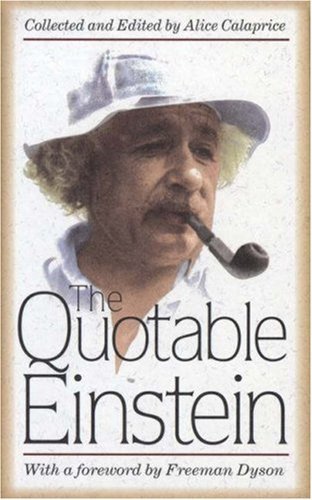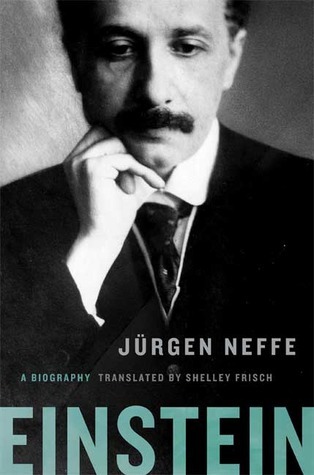
The Quotable Einstein
Book Description
Dive into the mind of a genius where every word ignites curiosity and sparks revolution. "The Quotable Einstein" presents the most profound insights from one of history’s greatest thinkers, blending science, philosophy, and humanity in a tapestry of wisdom. Each quote is a doorway to understanding the universe, revealing the delicate dance between imagination and reality. From the mysteries of time to the nature of love, Einstein's reflections challenge conventions and inspire the bold. What secrets of the cosmos and the human spirit await in these timeless thoughts? Prepare to be transformed, one quote at a time.
Quick Book Summary
“The Quotable Einstein” is an illuminating collection of Albert Einstein’s most memorable sayings, drawing from his letters, lectures, interviews, and essays. This distinctive volume offers readers a gateway into the mind of one of history’s greatest scientific thinkers. Einstein’s words span a broad array of topics, from the wonders of physics and mathematics to reflections on philosophy, politics, love, and humor. The book highlights Einstein’s unique blend of wit, humility, and deep insight, revealing how his ideas shaped not just science, but our view of humanity and the cosmos. Whether tackling profound scientific concepts or simple truths about life, Einstein’s eloquence encourages curiosity, challenges the status quo, and inspires both personal and collective growth.
Summary of Key Ideas
Table of Contents
The Imagination’s Role in Scientific Discovery
Einstein’s reflections on imagination underscore its critical role in advancing scientific discovery. Contrary to the common belief that logic and empirical evidence are the anchors of science, Einstein often credited his creative intuition and ability to envision scenarios beyond the obvious. He famously said, “Imagination is more important than knowledge. For knowledge is limited, whereas imagination embraces the entire world.” His insights encourage thinkers to look beyond established facts and dare to conceive the unprecedented, revealing how theoretical leaps often precede empirical breakthroughs and innovation.
Reflections on Humanity and Peace
Einstein’s advocacy for peace and his meditations on humanity reflect a deep commitment to ethical responsibility. His experiences during turbulent historical times, particularly the two World Wars, led him to champion international cooperation, disarmament, and the broad value of compassion. In candid quotes, he lamented the perils of nationalism and the moral responsibilities of scientists, emphasizing the importance of empathy and collective well-being. These passages show how Einstein’s scientific genius was matched by a profound social conscience, urging readers to strive for a more just and peaceful world.
Philosophy, Religion, and the Search for Meaning
The book delves into Einstein’s philosophical and spiritual quest for understanding the cosmos and our place in it. He expressed reverence for the mysteries of existence, often referencing the limitations of human knowledge and the awe inspired by the universe. While skeptical of organized religion, Einstein spoke of a "cosmic religious feeling," linking his scientific curiosity to a sense of wonder. His perspective invited dialogue between science and philosophy, inspiring generations to explore both the outer reaches of the universe and the inner depths of meaning.
Humor and Humility in the Life of a Genius
Throughout his life, Einstein’s wisdom was often conveyed with humor and humility. He playfully commented on his own fame, the quirks of daily life, and the pleasures of simplicity, all while maintaining deep reverence for the pursuit of truth. These lighter remarks reveal a man not only brilliant but approachable and relatable. Such moments serve as a reminder that intellectual achievement is enriched by levity and self-awareness, making Einstein’s legacy both accessible and endlessly engaging.
The Nature of Knowledge and Learning
Einstein’s thoughts on knowledge, learning, and education are a recurring theme in the collection. He advocated for curiosity-driven exploration instead of rote memorization, believing that genuine understanding arises from questioning and independent thinking. Quotes from the book encourage readers to keep the spirit of inquiry alive, warning against complacency and dogmatic adherence to authority. Einstein’s approach to learning remains relevant, promoting adaptability, lifelong curiosity, and the pursuit of wisdom beyond conventional frameworks.
Download This Summary
Get a free PDF of this summary instantly — no email required.





